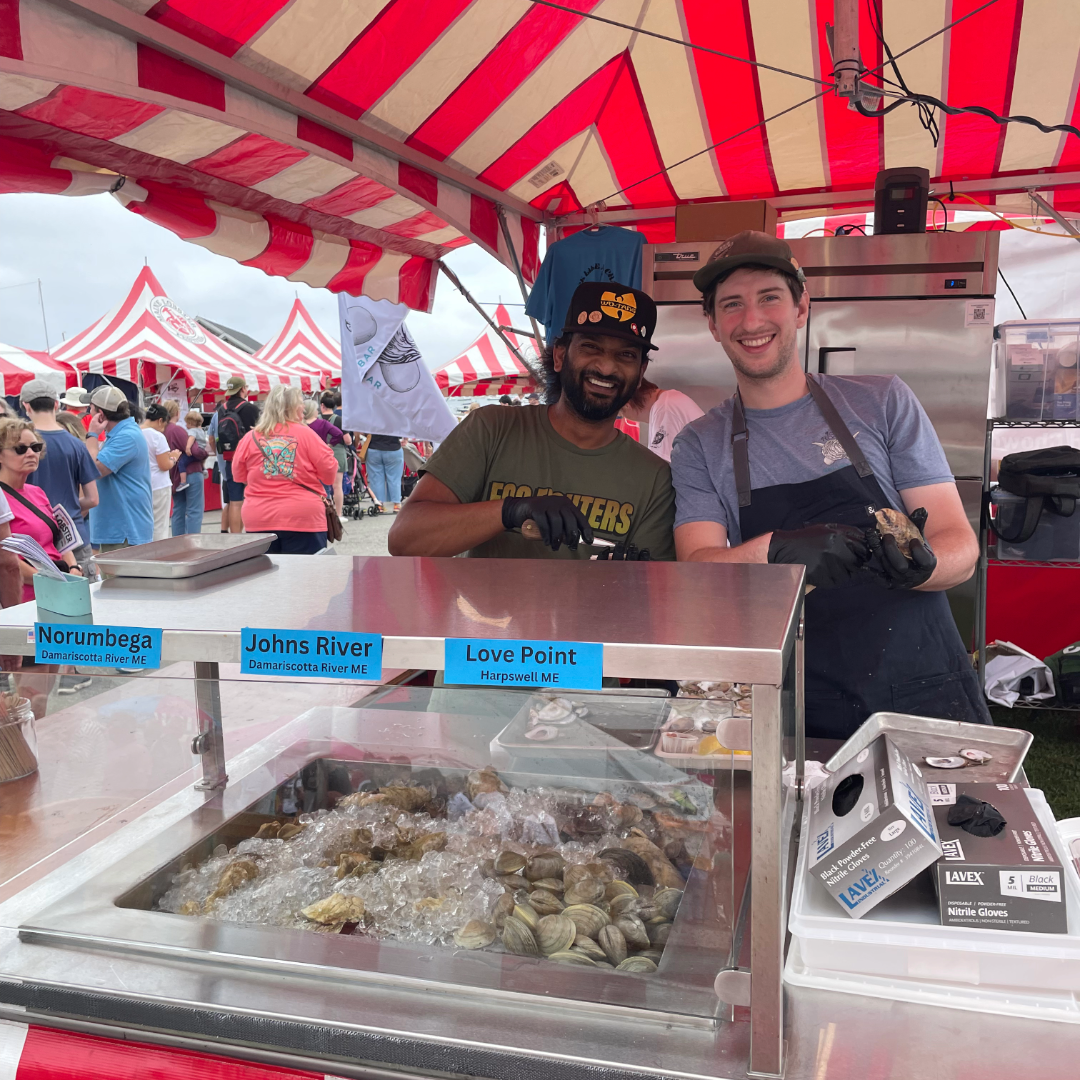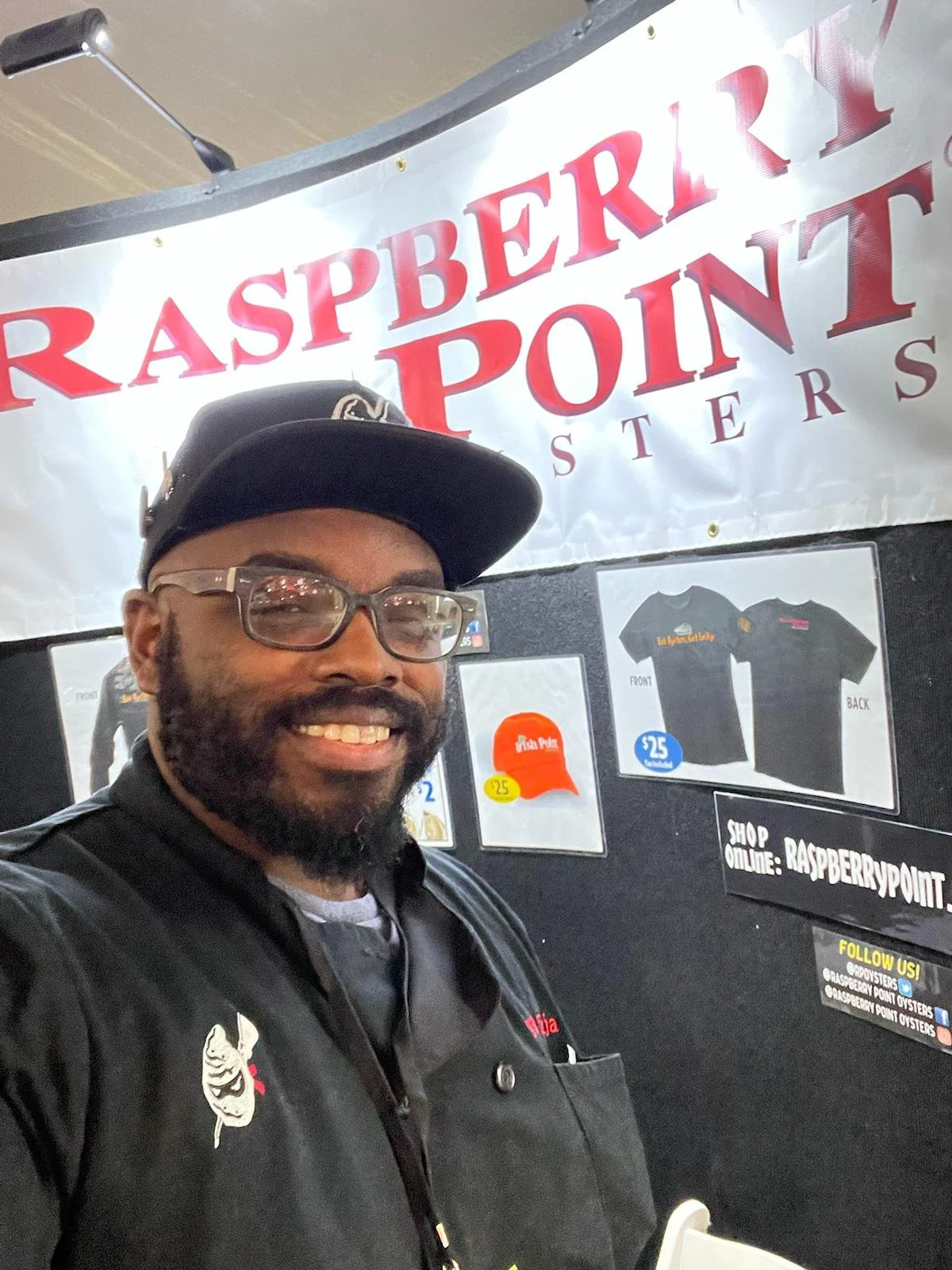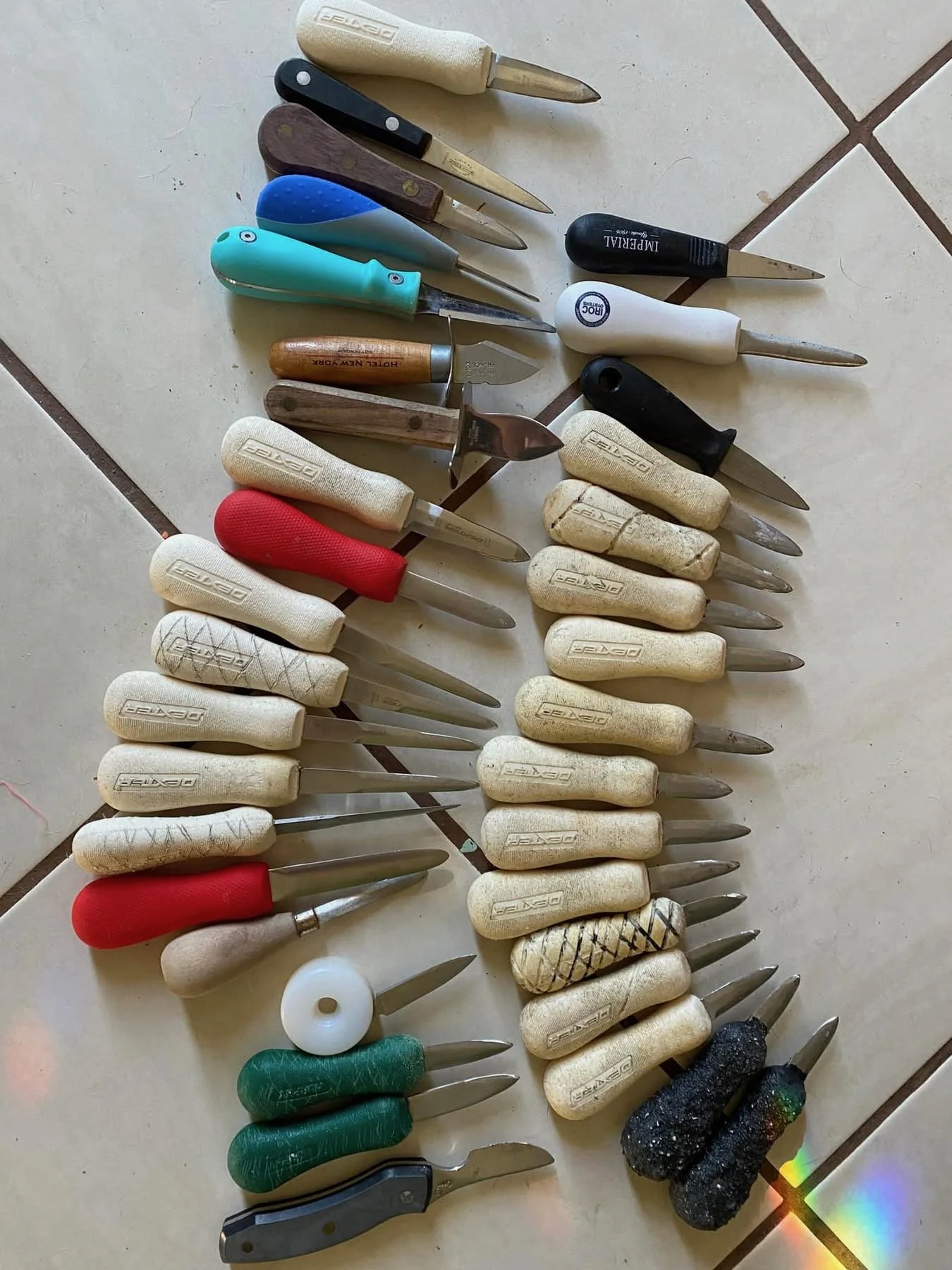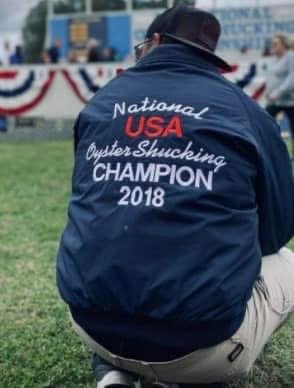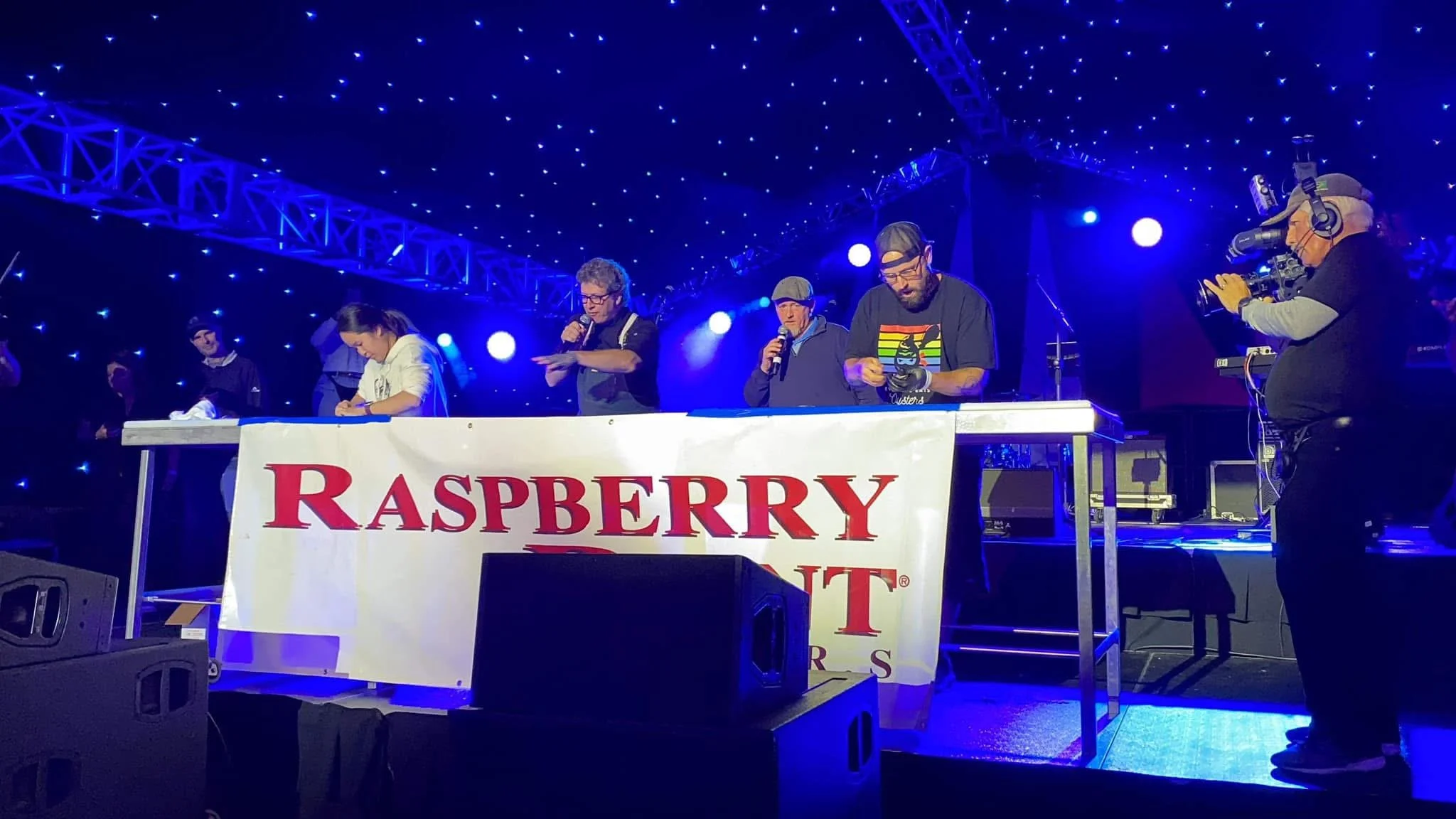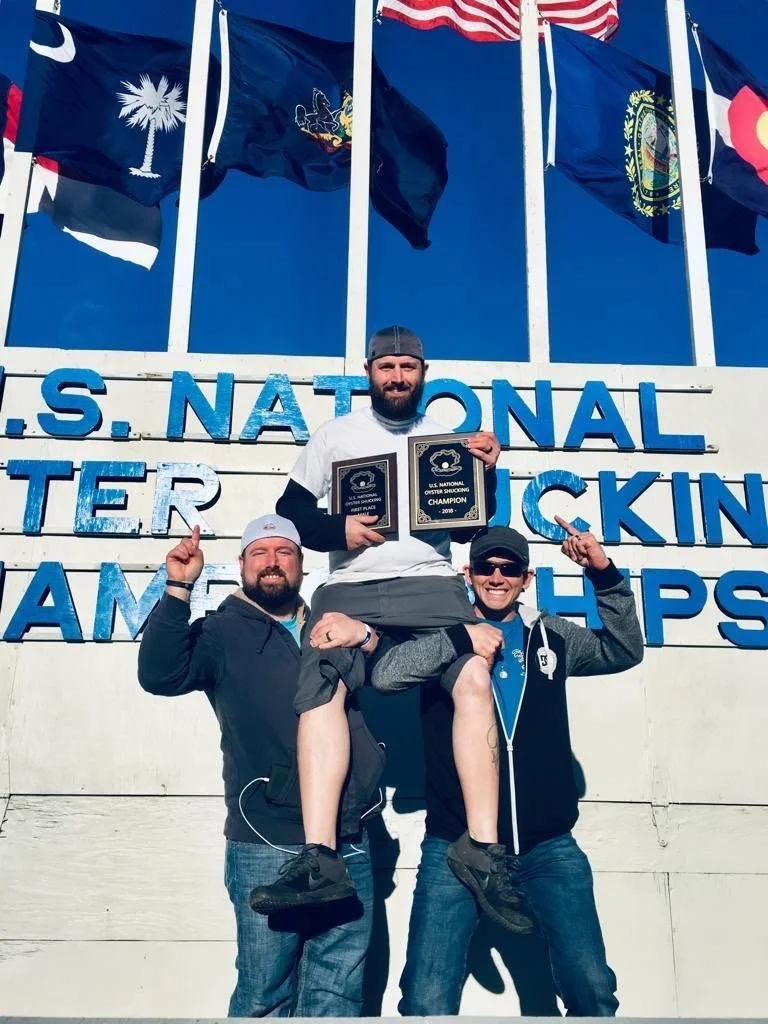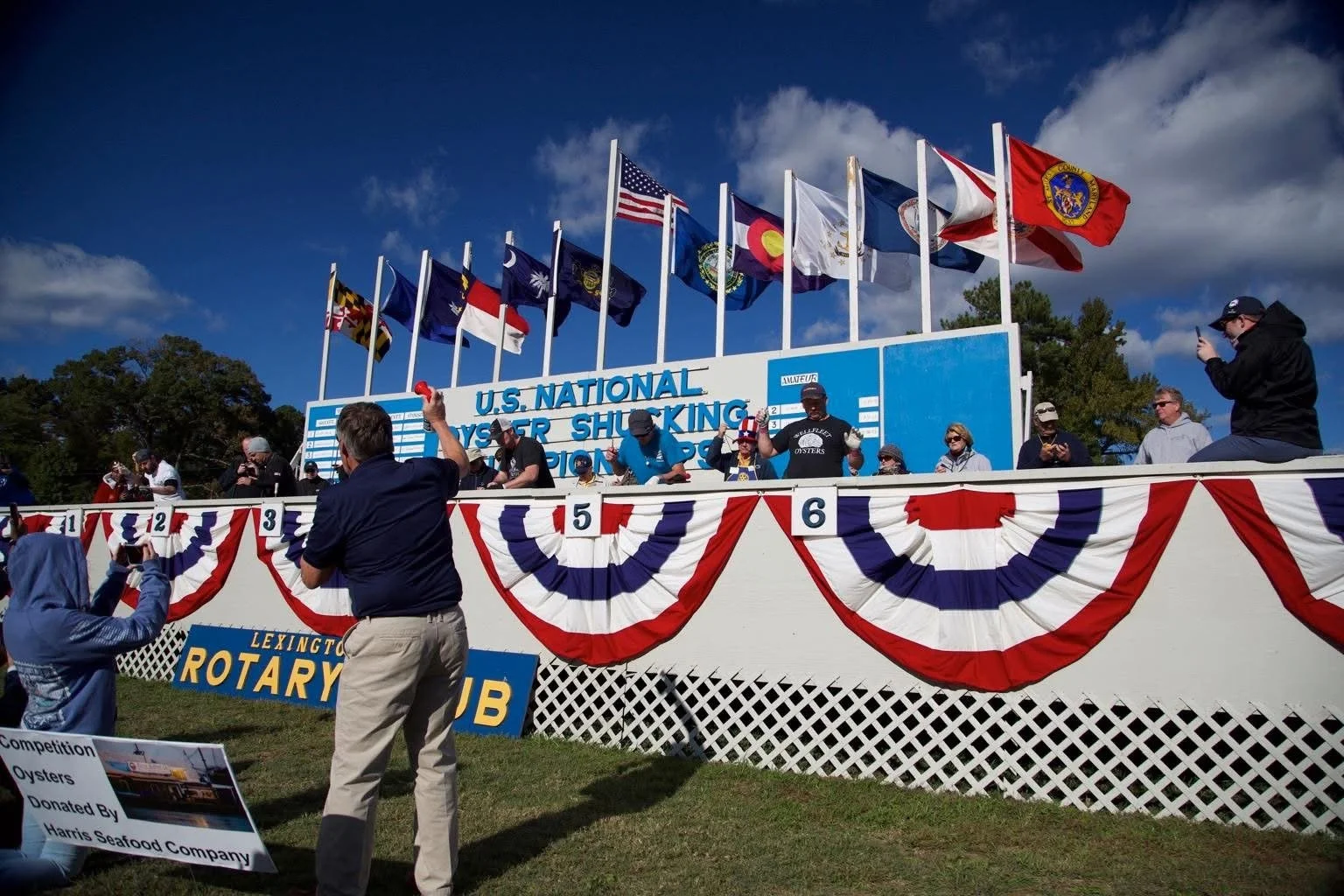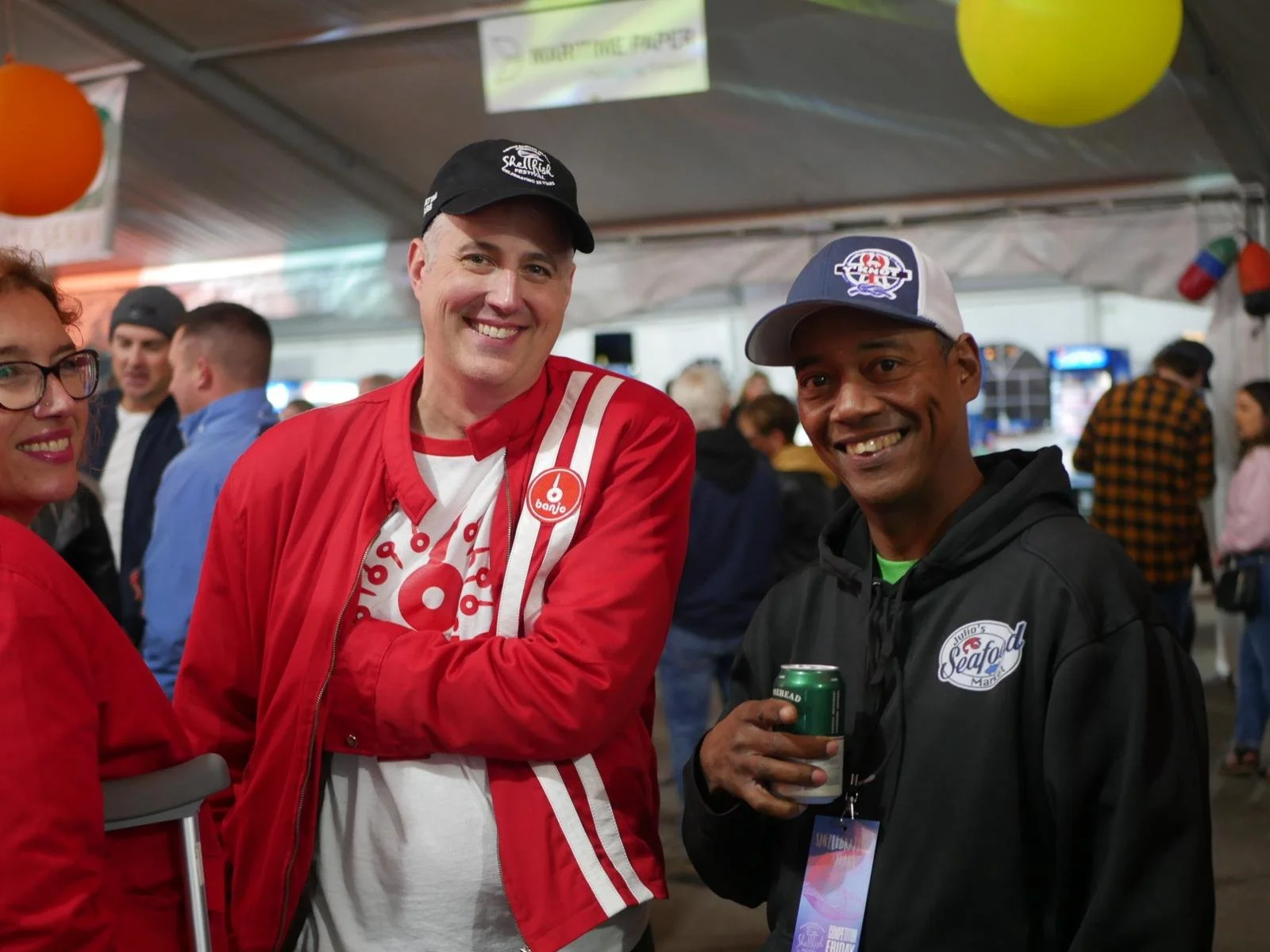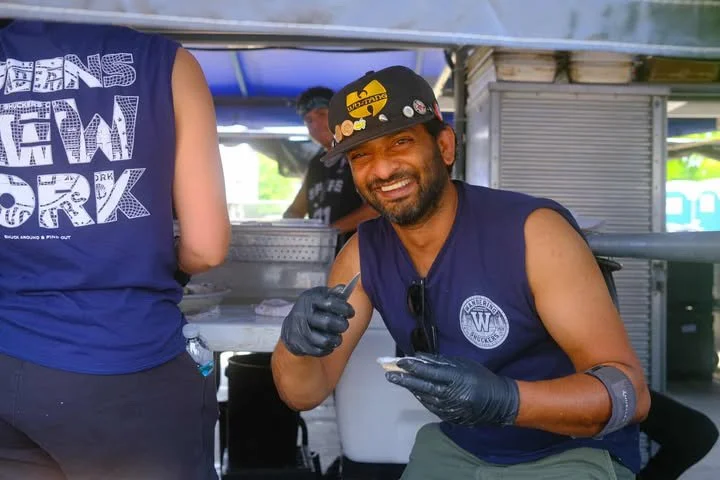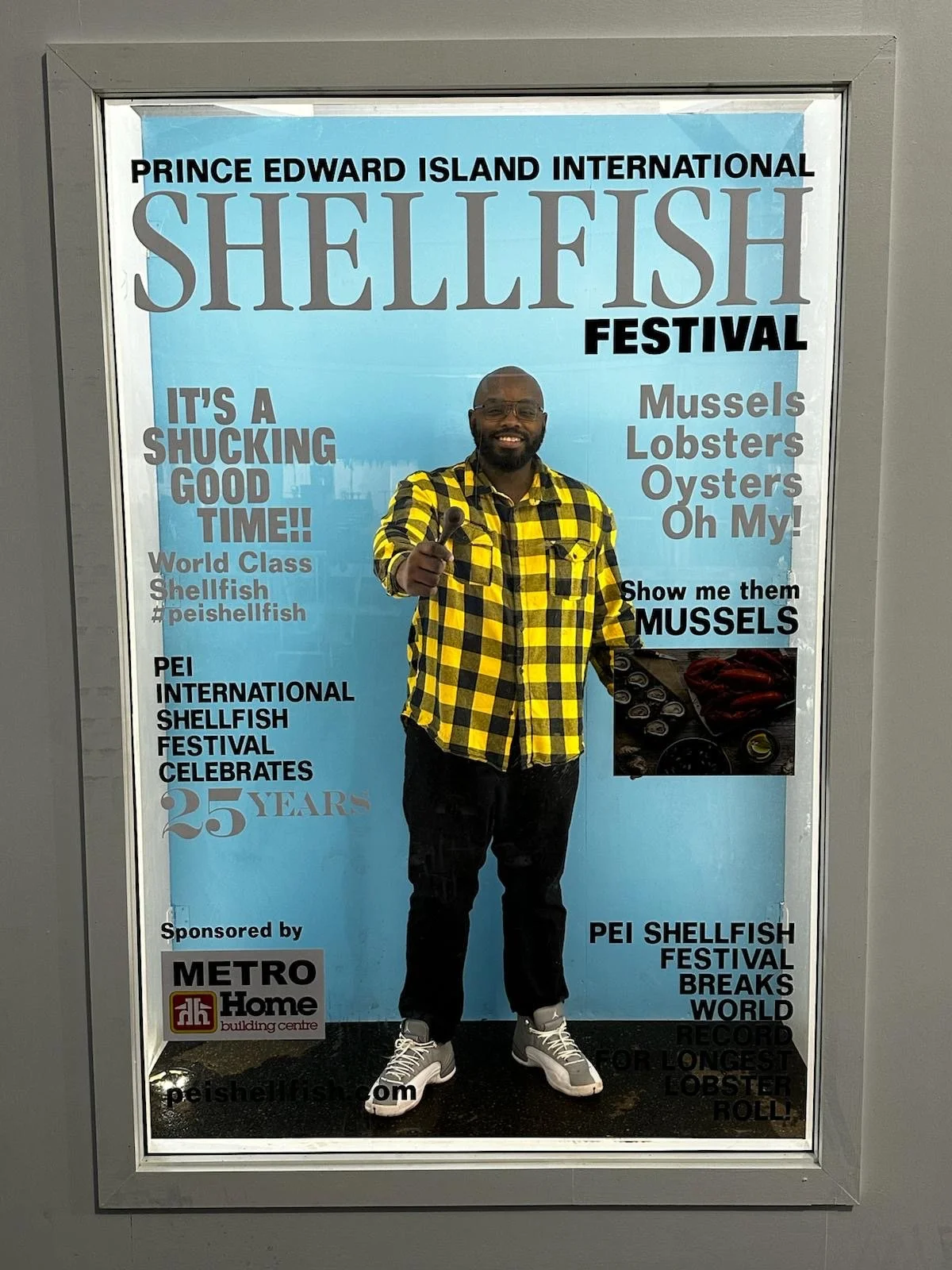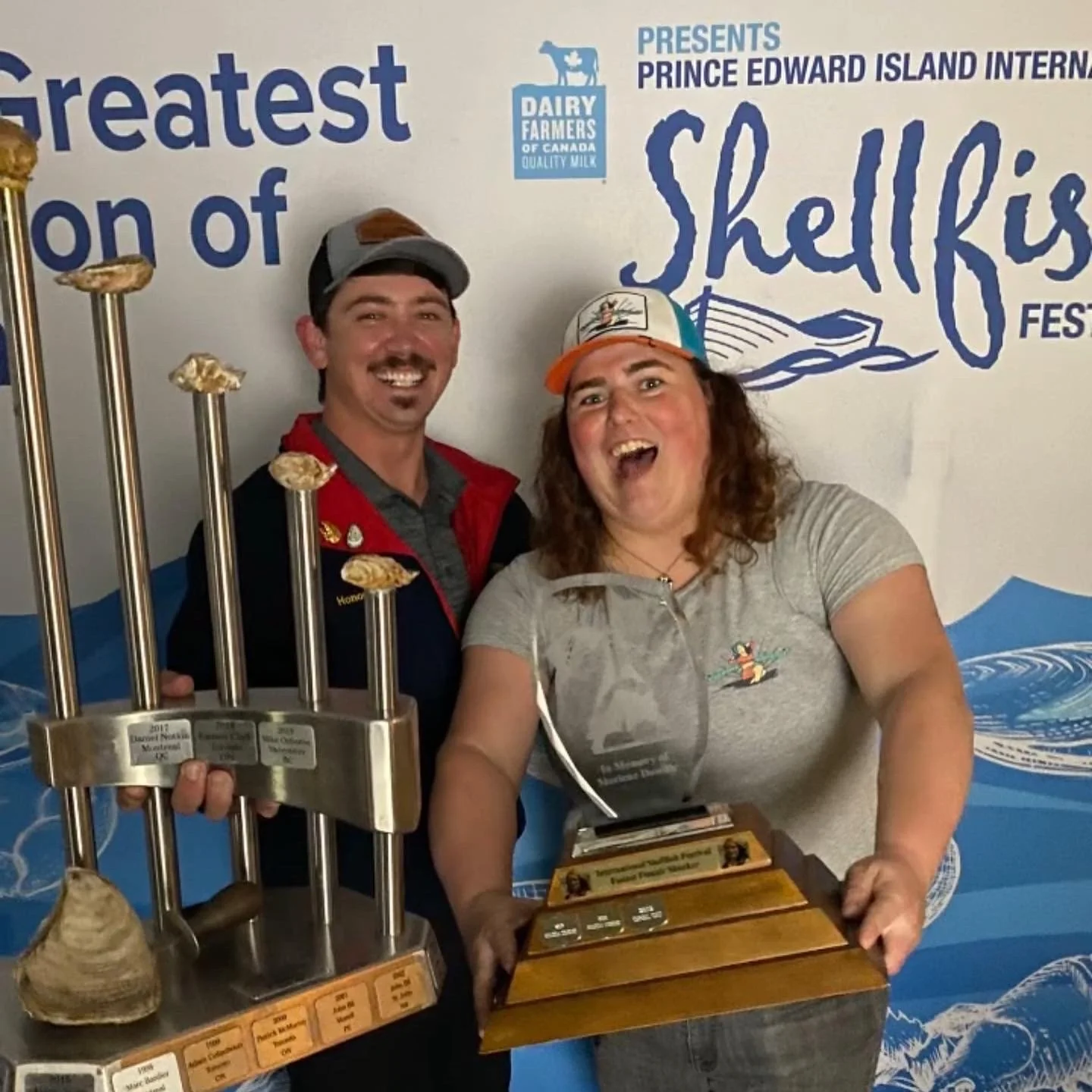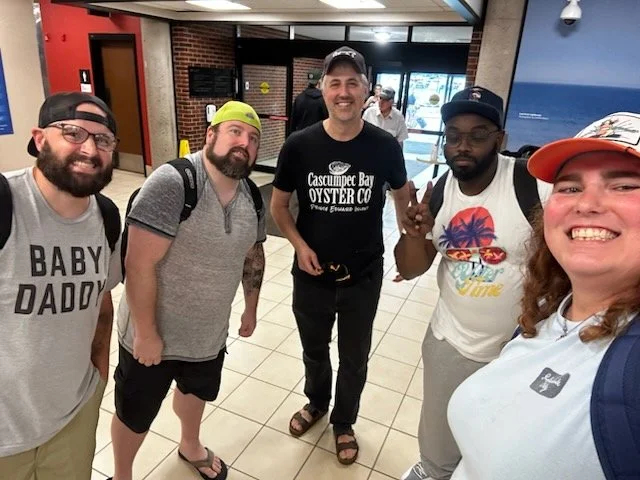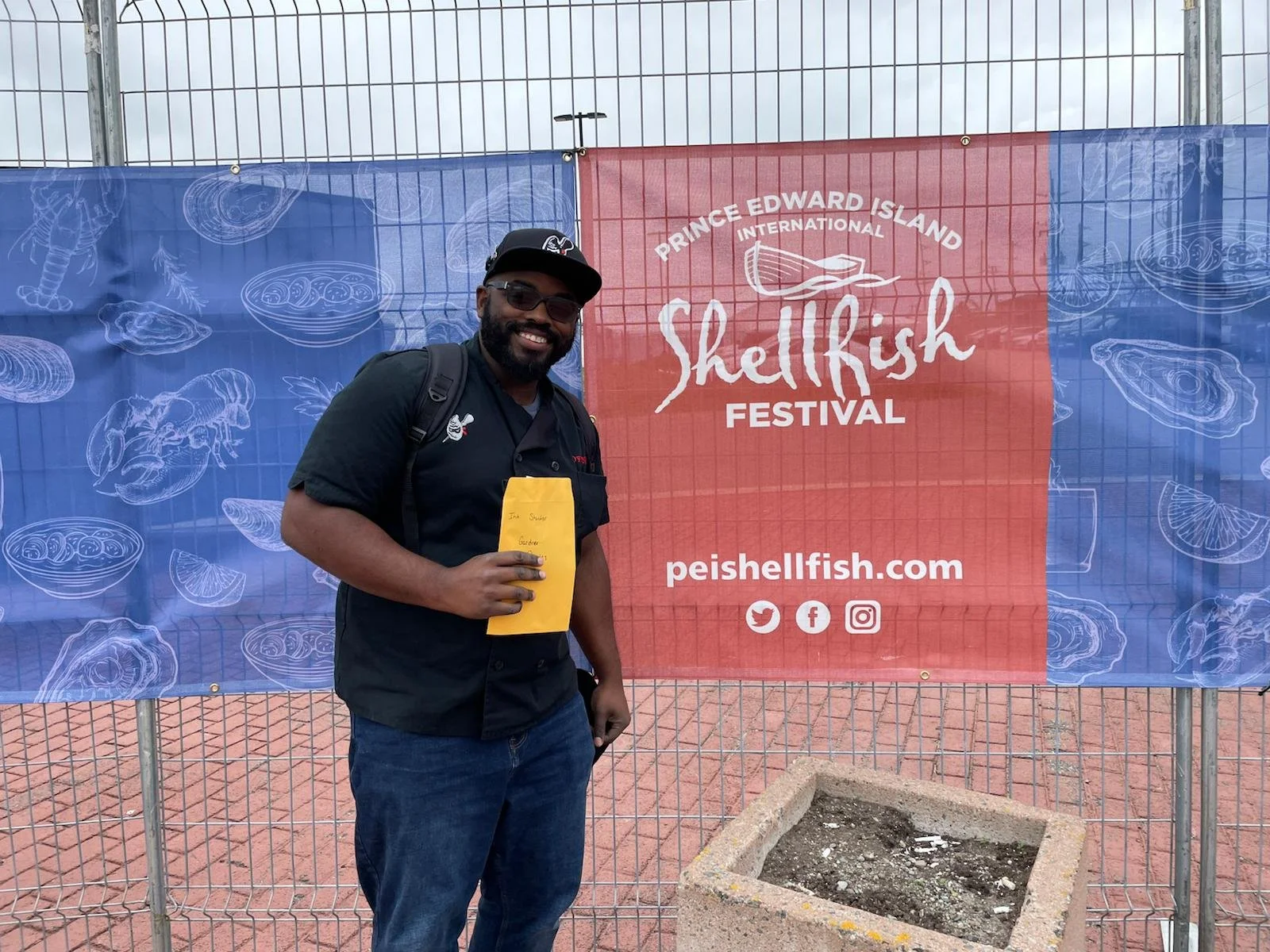The Shucker’s Apprenticeship – Learning the Craft from the Best
No one picks up an oyster knife and becomes a professional oyster shucker overnight. Like any craft, oyster shuckingis a skill honed through time, practice, and, most importantly, guidance from those who’ve done it before. Every shucker has a story about their first oyster, their first tough tray, and the first time they saw someone truly great at the craft and thought, I need to learn that.
For me, that moment came watching Andy Rogers at the Maine Lobster Festival, shuck with effortless precision. Andy moved through oysters like he’d been doing it since birth—each one clean, perfect, effortless. It was a reminder that there’s an artistry to this, a rhythm you have to find
Learning the Hard Way: The Old-School Shucker’s Baptism
Historically, oyster shucking was a trade passed down through generations. In the early days of the American oyster industry, particularly in places like the Chesapeake Bay, Louisiana, and New York City, shuckers worked in packed houses, moving through bushels of Gulf oysters and East Coast oysters daily. Speed was king, but so was efficiency. Younger workers learned by watching the best, mimicking their movements, and eventually earning a spot at the table.
Today, many shuckers still come up that way. I’ve worked alongside guys who can open a dozen oysters in under a minute, their hands moving so fast the blade barely registers. It’s humbling, watching someone who’s been doing this for decades make it look easy, while you’re still finding your footing. It’s all about understanding the oyster, respecting the work of the oyster farmers who grew it, and honoring the craft.
The Mentorship Model: Learning from the Best
Oyster shucking can be a solitary job—you stand behind a raw bar, a catering table, or a competition stage, and it’s just you, a knife, and a pile of oysters. But the best shuckers don’t get there alone. They learn from the ones who came before them.
Jay Gallet at Superior Seafood is a perfect example of what makes the best shuckers stand out. He had no reason to come up to me during the U.S. National Oyster Shucking Competition in St. Mary’s, Maryland, and offer advice—he was one of the top shuckers there, and I was just stepping onto that stage. But that’s exactly what he did.
That same generosity was there when I drove to New Orleans and met him again at Superior. He was ready with information, helpful tips, and the same mentorship energy he’d shown before. Watching him shuck next to Paytoven, I realised Jay isn’t just a master shucker—he’s someone who understands that this craft is about more than speed or skill. It’s about oyster culture and community. The best in this industry don’t hoard knowledge—they pass it on.
A great mentor teaches more than technique. They teach respect. I didn’t have that kind of mentorship when I started shucking, but every event, every oyster festival, every farm visit, every oyster shucking competition, every conversation with someone who’d been in this world longer than me—those became my classroom.
The Competitive Edge: How Competitions Shape Shuckers
I used to think oyster shucking competitions were just about speed. I was wrong. Watching the best in the country compete at Nationals changed my perspective entirely. It wasn’t just a race—it was a masterclass in technique. The top competitors weren’t just fast; they were clean. No shell fragments, no torn meats, no lost liquor.
When you stand next to a champion shucker, you realize how much more there is to learn. Competing forces you to refine your movements, eliminate wasted motion, and develop a rhythm that works for you. It’s humbling. It’s exhilarating. And it’s one of the best ways to become a better professional oyster shucker.
The Modern Shucker: A Blend of Old and New
Today’s oyster shuckers have more resources than ever—online tutorials, mentorship programs, structured training courses. But the heart of the craft hasn’t changed: the best way to learn is still hands-on, side-by-side with someone who knows more than you.
I may not have grown up in an oyster house, but I’ve shucked in more states than I can count, worked alongside some of the best in the industry, and carved out a place for myself in this world. And if there’s one thing I’ve learned, it’s that the best shuckers never stop learning. There’s always another trick, another technique, another story to tell.
On to the World Stage: PEI Shellfish Festival
This year, I’m taking those lessons to the PEI International Shellfish Festival in Prince Edward Island, Canada—the home of the Raspberry Point World Oyster Shucking Championship. Only 24 shuckers are invited to compete, and I’m proud to be part of Shuck Team USA.
We’ve got a stacked crew:
Gardner Douglas (MD) – Known as The Oyster Ninja, a top-ranked competitive shucker, educator, and voice for oyster culture across the U.S.
Isabella McBeth (SC) – A fierce competitor and crowd favorite, blending precision with Southern oyster charm.
Andy Rogers (ME) – One of the cleanest and fastest shuckers in the game, with a reputation for technical mastery.
Brian & Chris Clark (FL) – The powerhouse brothers of the Florida oyster scene, equally feared and respected on the competition stage.
Rutvik Patel (NY) – Founder of The Wandering Shuckers Co., traveling the country to shuck oysters, connect communities, and tell the stories behind the shell.
Competing against the best in the world is the ultimate test—speed, precision, and presentation all under the clock. And while the win is always the dream, the real value is in bringing those lessons home to elevate every event, every oyster catering gig, and every shuck we put forth.
We’re opening the door for sponsorship opportunities to help get Shuck Team USA to PEI. If you believe in oyster culture, farm-to-table seafood, and showcasing American talent on a global stage, now’s the time to be part of the journey.
Because here’s the truth—no matter where you stand, from farmer to chef to professional oyster shucker, we all have the same job: honor the food and the people behind it. That’s what I’ll be carrying with me to PEI. Whether I come home with a trophy or just another story to tell, every competition, every event, every raw bar shift is part of a bigger apprenticeship—one that never really ends.
So keep an eye out. We’ll be out there shucking, learning, and connecting—one oyster, one conversation, one community at a time. We’ll have a knife in one hand, an oyster in the other, and a beer somewhere close by… come keep us company, swap a few stories, and enjoy some oysters.

